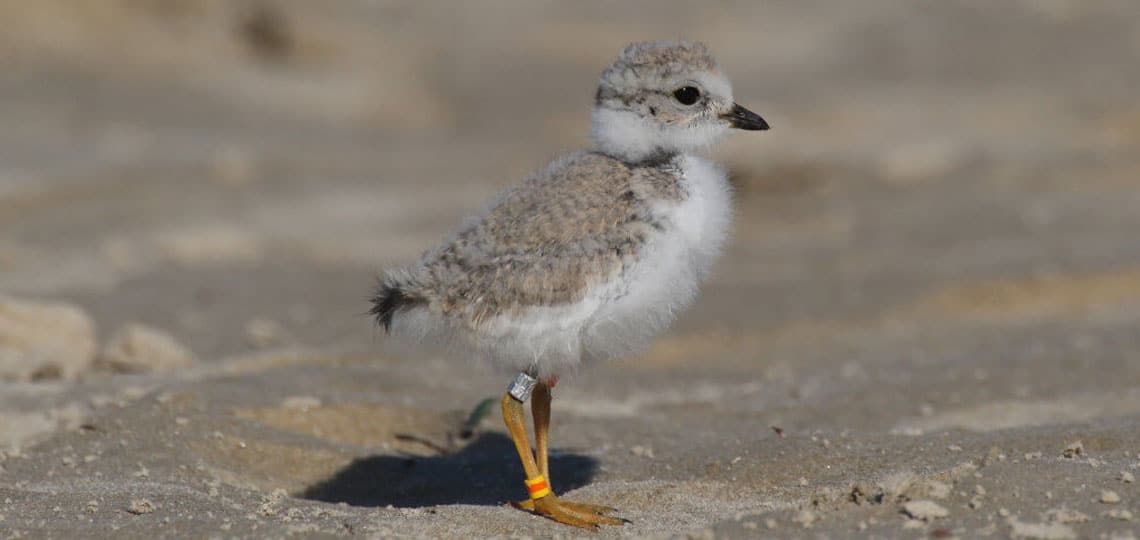HALIFAX/K’JIPUKTUK, UNCEDED TERRITORY OF THE MI’KMAQ PEOPLE – Ecojustice, on behalf of East Coast Environmental Law and Nature Nova Scotia, is taking the federal Minister of the Environment and Climate Change to court for weakening the habitat identification approach for the endangered piping plover.
In 2022, the federal government amended its original recovery strategy and adopted a “bounding box” approach to habitat identification. This weakened approach means that instead of protecting the whole beach for piping plover habitat, only small areas that meet a vague set of criteria will be protected.
The groups allege that this new approach makes enforcement, and consequently protection, of these habitats more difficult and leaves unprotected parts of the beach open for development and construction.
The original strategy, released in 2012, identified more than 200 entire beaches throughout Atlantic Canada and Quebec as piping plover habitat.
Environment and Climate Change Canada has used the “bounding box” approach to identify other endangered species’ habitat, including: the Eastern Meadowlark, the American Badger, and the Bobolink.
Sarah McDonald, Ecojustice lawyer said:
“We’re taking Minister Guilbeault to court to ensure that the habitat of endangered species, like piping plover, is properly identified and protected, as required by law under the federal Species at Risk Act.
“Protecting and restoring natural habitats is a crucial response to tackling the biodiversity crisis and helping endangered species, like piping plovers, survive and recover. We cannot let Environment and Climate Change Canada default to the weakened “bounding box” approach to habitat identification. There is too much at stake.”
Lisa Mitchell, executive director and senior lawyer at East Coast Environmental Law said:
“We are in the midst of a global biodiversity crisis. This is not the time to roll-back habitat protections for any at-risk species, including the iconic piping plover.”
Bob Bancroft, president of Nature Nova Scotia said:
“Strong, enforceable habitat laws are a necessity if we are to turn the tide of endangered species population declines in Canada.”

